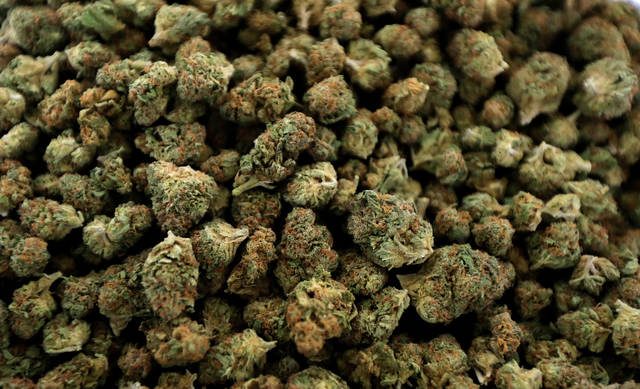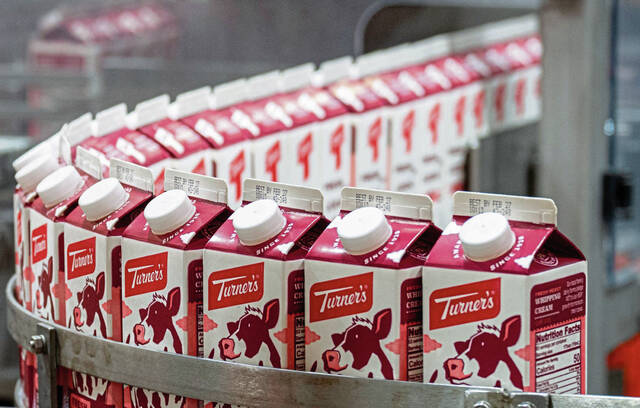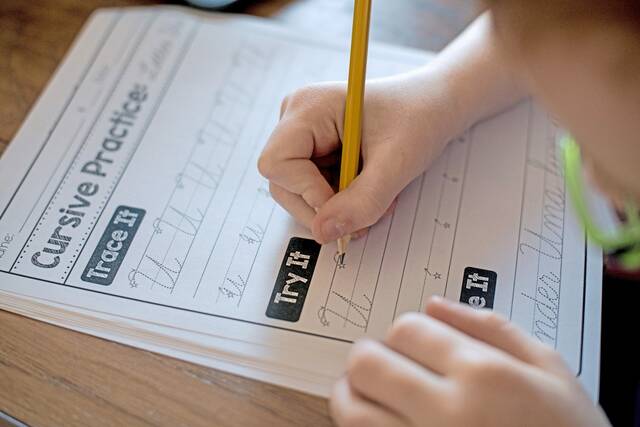Medical marijuana sales totaled more than $130 million during Pennsylvania’s first year of selling cannabis products to patients — surpassing the first-year sales of several neighboring states combined, state figures released Friday show.
Gov. Tom Wolf signed the bipartisan bill to legalize medical marijuana in April 2016, and sales began at the first handful of dispensaries to open in February 2018.
Wolf said in a statement that the first-year sales data “tells us that this program is working to help Pennsylvanians in need of this medication.
“Patients are realizing the benefits and there has been steady, positive progress that I am pleased to report,” Wolf said.
As of this week, Pennsylvania’s medical marijuana program has grown to include more than 100,000 registered patients, 83,000 certified patients with identification cards, and nearly 1,000 certifying physicians.
There are 25 growers/processors and 45 dispensaries that combined sold cannabis products 600,000 times in the past year, state health department data show.
Dispensaries reported $132 million in gross sales last year, and state coffers received $2 million in tax revenue from growers and processors, Wolf said.
In comparison, Maryland reported sales of $95.4 million in its first year ending in November.
Illinois reported $36.3 million, followed by Massachusetts ($25 million to $35 million) and New York ($5 million to $15 million), state records and data compiled by Marijuana Business Daily show.
“We do see, especially when compared with some of our neighboring states, Pennsylvania’s medical marijuana program did very well in its first year,” said Nate Wardle, spokesman for the state Department of Health, which oversees the program.
Medical marijuana is legal in at least 32 states, though marijuana in any form remains an illegal controlled substance under federal law. That has severely limited U.S. research on its effects.
Among the first to try to change that, Pennsylvania has certified eight medical schools as academic clinical research centers.
“Our goal for the next year and beyond is to increase the number of grower/processors and dispensaries operating, to register even more physicians and to continue the growth of our scientific, medically based program,” state Health Secretary Dr. Rachel Levine said in a statement.
Officials expect the program to continue to grow as cannabis products become more accessible and convenient to patients who choose marijuana over the likes of pills and opioid-based alternatives to treat pain and symptoms.
Several factors and developments in the works look to further boost sales this year, including steady growth in the number of certified patients and more access to local dispensaries.
More product is being processed to meet demand as more growers come on board, compared to last spring when dozens of dispensaries ran out of products.
Pennsylvania only began selling marijuana in dry leaf, or flower, form last April (though state law still says the product must be vaporized, not smoked). The customer-preferred flower products were cited as a reason for higher sales in Maryland.
Patients with one of 21 qualifying conditions can be certified by a doctor for $200 and buy a Pennsylvania medical marijuana identification card for $50.
Forty-five of 50 approved dispensaries have begun operating, with the remaining five set to open their doors this year.
State law set the maximum at 50 dispensaries, which means lawmakers would have to take legislative action to allow any more.
Lawmakers also are the ones who can decide to allow dispensaries to begin selling edible cannabis products, such as candy and baked goods, as recommended by the Pennsylvania Medical Marijuana Advisory Board earlier this month.
On Feb. 1, a committee appointed by the board also green-lighted two more conditions to go before Levine for final approval — anxiety and Tourette’s Syndrome. There is no deadline by which Levine will issue her decisions.
For more information about the medical marijuana program or to register as a patient or caregiver, visit www.medicalmarijuana.pa.gov/.








